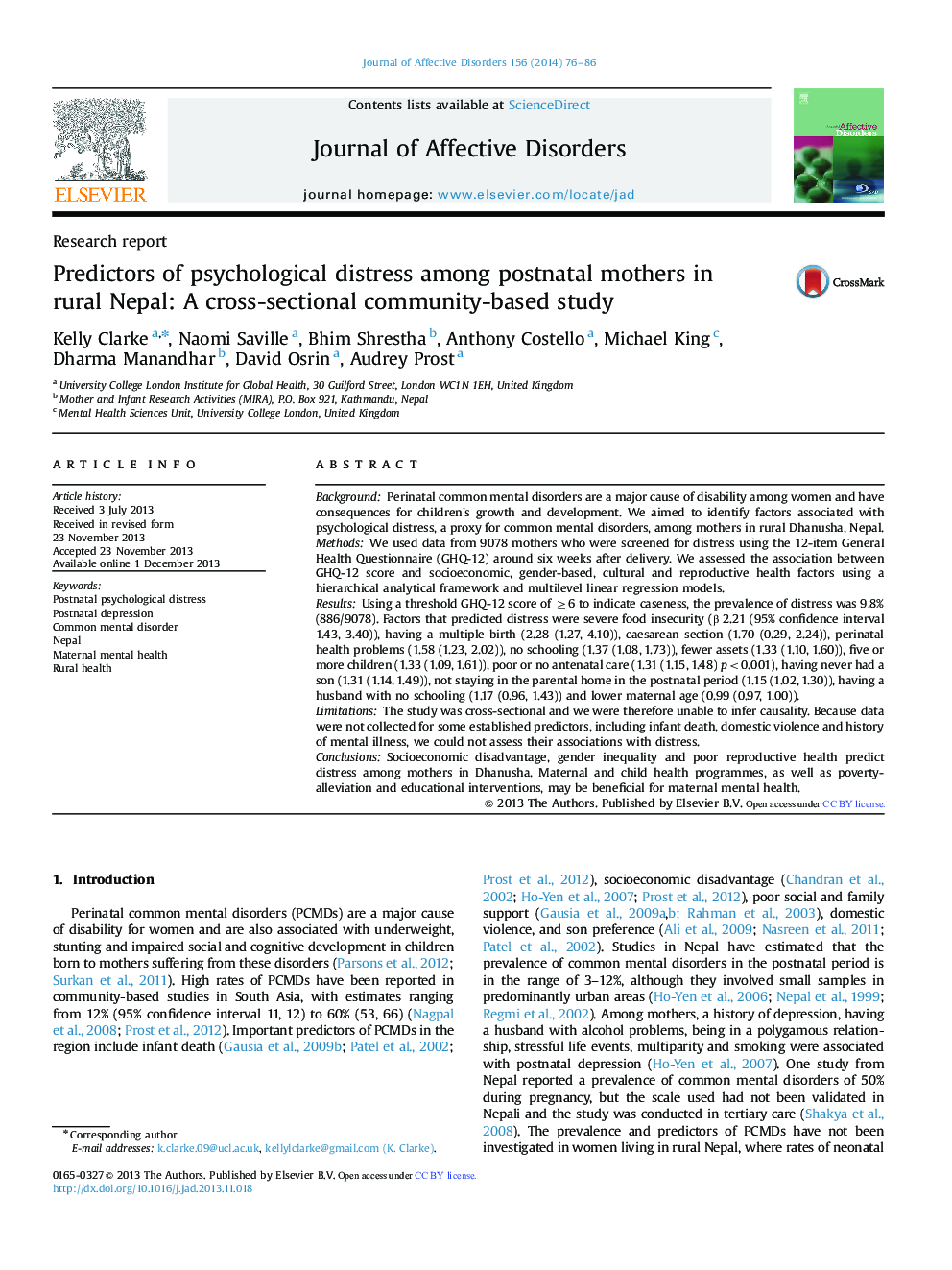| کد مقاله | کد نشریه | سال انتشار | مقاله انگلیسی | نسخه تمام متن |
|---|---|---|---|---|
| 6233807 | 1608169 | 2014 | 11 صفحه PDF | دانلود رایگان |
BackgroundPerinatal common mental disorders are a major cause of disability among women and have consequences for children's growth and development. We aimed to identify factors associated with psychological distress, a proxy for common mental disorders, among mothers in rural Dhanusha, Nepal.MethodsWe used data from 9078 mothers who were screened for distress using the 12-item General Health Questionnaire (GHQ-12) around six weeks after delivery. We assessed the association between GHQ-12 score and socioeconomic, gender-based, cultural and reproductive health factors using a hierarchical analytical framework and multilevel linear regression models.ResultsUsing a threshold GHQ-12 score of â¥6 to indicate caseness, the prevalence of distress was 9.8% (886/9078). Factors that predicted distress were severe food insecurity (β 2.21 (95% confidence interval 1.43, 3.40)), having a multiple birth (2.28 (1.27, 4.10)), caesarean section (1.70 (0.29, 2.24)), perinatal health problems (1.58 (1.23, 2.02)), no schooling (1.37 (1.08, 1.73)), fewer assets (1.33 (1.10, 1.60)), five or more children (1.33 (1.09, 1.61)), poor or no antenatal care (1.31 (1.15, 1.48) p<0.001), having never had a son (1.31 (1.14, 1.49)), not staying in the parental home in the postnatal period (1.15 (1.02, 1.30)), having a husband with no schooling (1.17 (0.96, 1.43)) and lower maternal age (0.99 (0.97, 1.00)).LimitationsThe study was cross-sectional and we were therefore unable to infer causality. Because data were not collected for some established predictors, including infant death, domestic violence and history of mental illness, we could not assess their associations with distress.ConclusionsSocioeconomic disadvantage, gender inequality and poor reproductive health predict distress among mothers in Dhanusha. Maternal and child health programmes, as well as poverty-alleviation and educational interventions, may be beneficial for maternal mental health.
Journal: Journal of Affective Disorders - Volume 156, 1 March 2014, Pages 76-86
